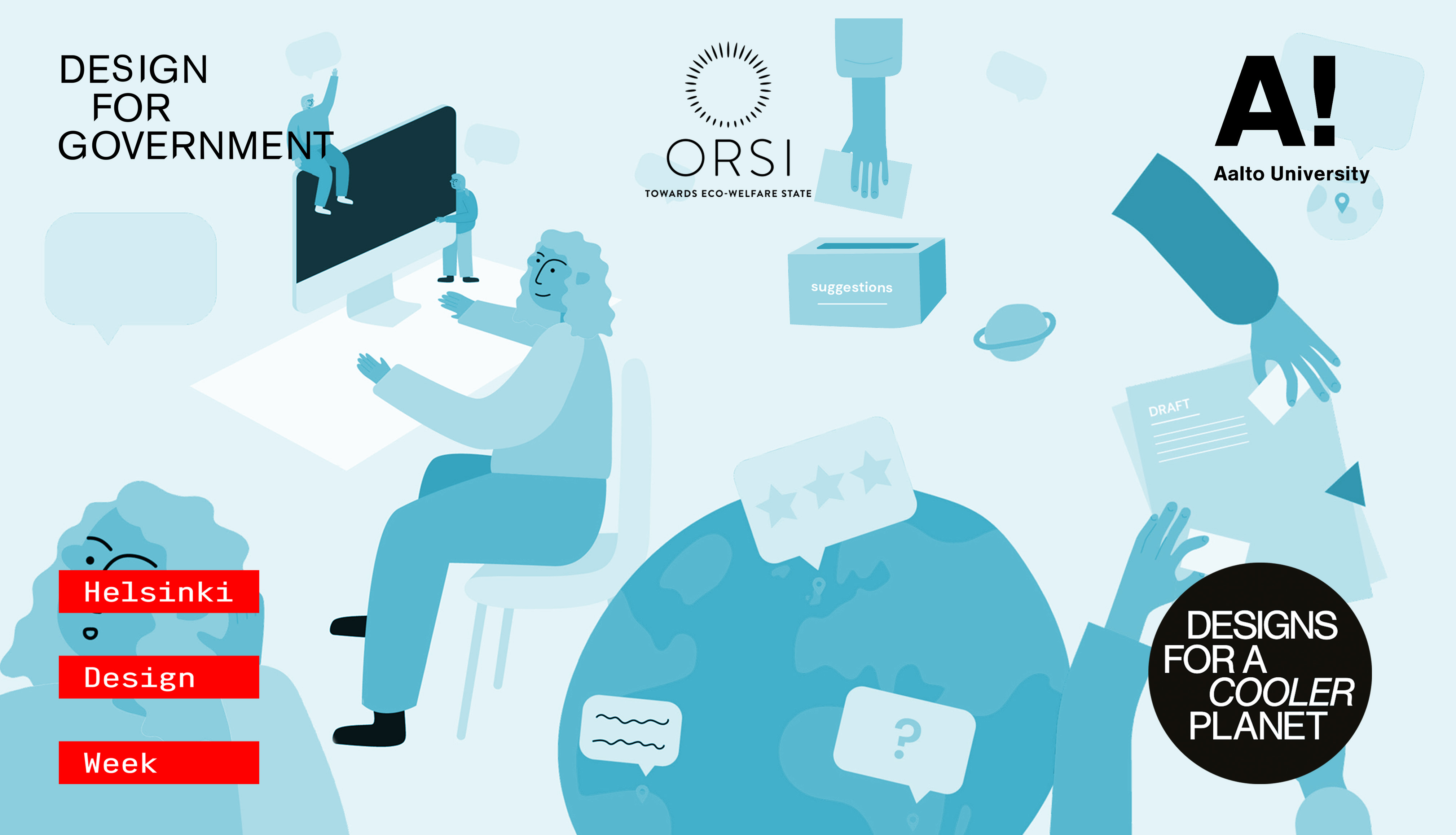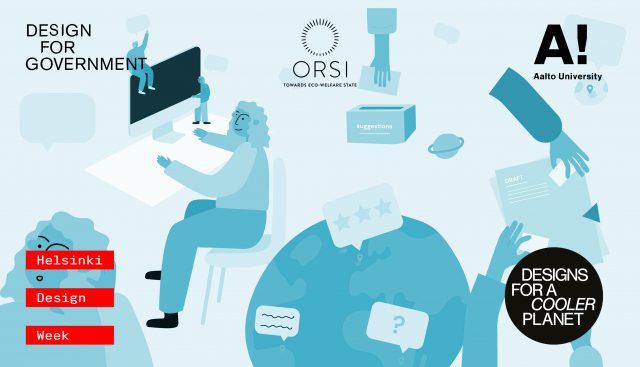Recording of the Helsinki Design Week Online event:
21.09.2021 (14:00 – 16:00h): “Design for government: Two cases of designing sustainabilitypolicy in Finland”
Image: Original illustration by Savannah Vize, Hannah Roche, Amir Tahvonen, Shuaijun Zhang from Design for Government course at Aalto University.
About the cases:
Just Transition to Post-Oil Heating in Homes (2020) by the Ministry of Environment and ORSI research project/consortium. Finland has an ambitious target to become carbon neutral by 2035. However, due to the cold climate in Finland, residential heating consumes a relatively high amount of energy. Oil is still commonly used for central heating in single-family homes, and these upwards of 130,000 homes homes represent a significant CO2 emission reduction potential. Moving away from residential oil-heating is much more than a technical question of energy systems and substitutes. The Ministry of the Environment is assessing measures to ensure a fair and just transition in the matter. This requires knowledge and understanding of the citizens living in the oil-heated housing: what hinders the transition, what are the effective means and measures and how the state can most effectively support the transition? This project looks at the role of single-family homes in Finland, including regulation of their lifespans and residential lifestyles.
“License to Heat” project by Hsin-Yun Lai, Daniel Leiviskä, Anh Nguyen, Emile Rebours:
License to Heat Project Report (PDF)
License to Heat Project Video presentation
Reducing the carbon footprint of public procurement, using the Kela Maternity package example (2021) by Kela, The Ministry of Economic Affairs and Employment & ORSI research project/consortium. An example of public procurement is the Kela Maternity box. Each year, Kela awards around 50,000 maternity grants, of which about 30,000 are provided in the form of a maternity package. There are altogether some 50 different items in the box. The selection of companies – and products that are included in the year’s package, is followed by an open public bidding process where service providers across the fashion, health and care industries are invited to participate.This project aims to use the Maternity package as an example to inform the legislation, the role of working methods and policy changes that can be scaled to other procurement processes across public services in Finland. The task involves identifying the main drivers and processes that should change in order to establish sustainable and innovative public procurement as the norm.
“Unclouded” project by Michael Buchta, Amandine Fong, Kalle Kaisko and Xinghua Meng:
Unclouded Project Report (PDF)
Unclouded Project Video presentation


